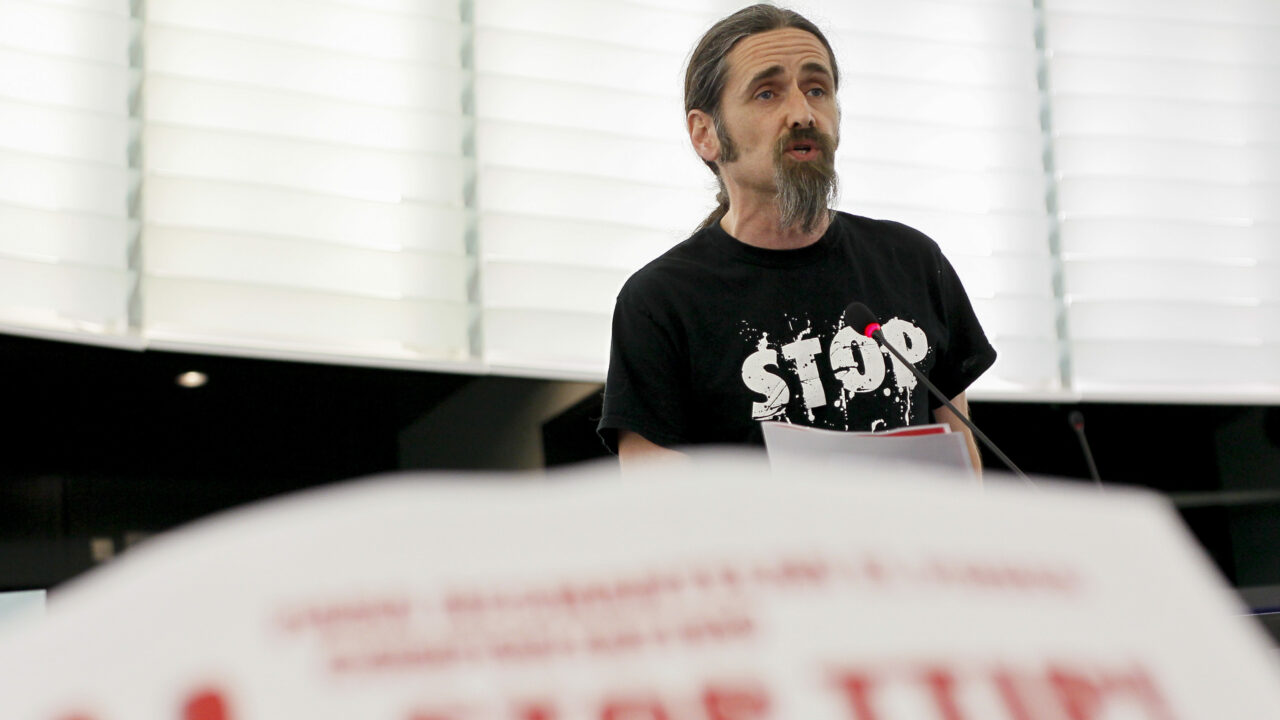A “magic money tree” which exists under the Common Agricultural Policy (CAP) for some farmers needs to be “chopped down”, according to Irish MEP Luke ‘Ming’ Flanagan.
He made the comment as the European Parliament Agriculture Committee debated ways to improve the EU Commission’s legislative proposals for the reform of the CAP post-2020.
Commenting on the proposals, he said: “My stomach sank when I heard the proposals from the commission.
There currently is a magic money tree for some farmers. Some farmers are getting €700/ha and more, and then their neighbour is basically getting nothing.
“What I hope to see achieved is that we chop down that magic money tree and we redistribute what we take out of it. But, what is proposed here will make that impossible.”
He stated that the people who will lose out in Ireland the most if the CAP goes ahead the way it is will be people who live in border areas.
Continuing, he added: “If convergence had happened, the county of Donegal would now be receiving €31 million extra per year in payments, Leitrim would have got €11 million and Mayo would have got €29 million extra.
That is extra money that has to come from somewhere else. It can’t come from the current payments if we go along with this, because there will be nothing to redistribute.
“So we have got to change that; otherwise we are not sticking to what we said here. I’m not here to defend or fight for the agricultural industry. Because the agricultural industry in my country includes some organisations that pay their taxes in Luxembourg, rather than pay it in rural Ireland.
“I am here to fight on behalf of farmers – small family farms; to keep the money locally, so it can circulate in the system and benefit everyone in rural areas. This proposal will not do that,” Flanagan claimed.
Concluding, he argued that if the committee is to be consistent with what it has said in the past – in relation to supporting young farmers and supporting farmers in disadvantaged or mountainous areas – then changes will have to be made to the CAP legislative proposals.
“This committee is going to have to gut this proposal and send it back to the commission in a completely changed form. If we don’t win on this one, we lose forever – so we better try and win it,” he said.
Can the proposals be applied?
Meanwhile, Mairead McGuinness – who is also an MEP for the Midlands-North West constituency – also raised concerns regarding the interpretation of the proposals.
Referencing concerns around definitions outlined in the proposals, she said: “The last time in CAP reform we agonised over ‘active farmers’ and we apparently didn’t get that right.
Now we are calling eligible farmers ‘genuine farmers’. But when I read what the commission is proposing, I’m not sure that we can actually apply what it is proposing and come up with something workable for the member states; so we need a lot of work on that.
“Equally, on capping there are concerns that – while it is there on paper – it might not work in practice.”
McGuinness stated that the committee should work “not as fast as it can, but as effectively as it can” in terms of making progress on the reform of the CAP.
‘Giving rise to a lot of uncertainty’
Furthermore, the current proposals “give rise to a lot of uncertainty”, according to Spanish MEP and rapporteur Esther Herranz Garcia.
Addressing the committee, she said: “It’s not some trivial reform, but a full-blown revision of the existing regulations with big changes; that’s the truth.
“There are also a lot of question marks here and a lot of doubt. The commission committed itself to having a results-based approach – but that is giving rise to a lot of uncertainty.
It is possible that we could go from a prescriptive system to a purely penalties-based system.
“The whole idea of the strategic plans is now quite widespread and it’s fully based on budget cuts. There’s no objective reason outside of the budgetary cuts for these changes.
“The failure to meet the new national goals – that will be set out in the strategic plans – will give rise to penalties, which will lead to more co-financing under CAP expenditure. What we are looking at, therefore, is CAP re-nationalisation,” she said.
